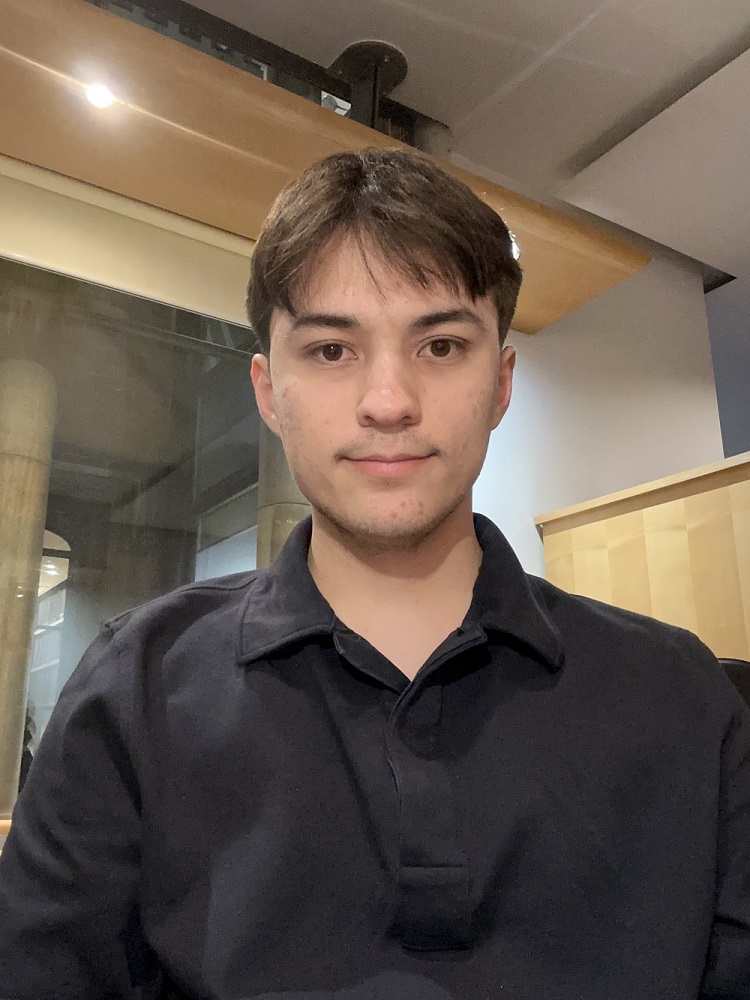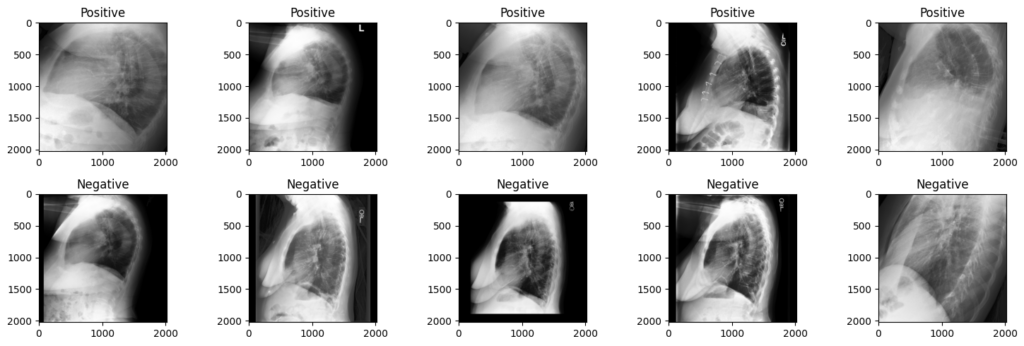Jelal Hydyrov (2022) is about to begin the third year of his Engineering degree. In the summer of 2023, Jelal took part in an Undergraduate Research Opportunities Programme (UROP) at Imperial College, focusing on artificial intelligence. In this article from The Eagle 2024 he discusses the programme and how it has informed his academic and career interests.
Pursuing an Engineering degree was a purposeful decision driven by my keen interest in how technological innovations shape our daily life. And, during the summer break, I fuelled this enthusiasm by engaging in a research project through the Undergraduate Research Opportunities Programme (UROP) focusing on artificial intelligence (AI).

While the excitement around AI is palpable, often bordering on the hyperbolic, my interest in writing this article lies beyond the typical discourse. I am acutely aware of the potential clichés and the oversaturation of AI narratives in current discussions. Therefore, my aim is to approach this piece purely as a reflection of my own experiences in this field.
My UROP project took place at Imperial College London – the opportunity having arisen after I contacted a project provider listed at Imperial’s UROP directory, which I learned about from my sister, who is a student there. Fortunately, I received additional support from St John’s through the Summer Bursaries Scheme, and this allowed me to take up the place. My participation in UROP also fulfilled the
Department of Engineering’s industrial experience requirement.
My project focused on medical report generation from radiographs. The learning curve proved to be steep. Delving into the technicalities of AI without a formal background in the subject meant that every step became a lesson. Engaging in online courses, reviewing survey papers and collaborating with my mentor at Imperial introduced me to a new educational approach that surpassed my previous experiences. While I had some familiarity with programming before the internship, I had the opportunity to delve into libraries such as PyTorch and gained a deeper understanding of the significant reliance on hardware such as graphics processing units.
In terms of the project, my focus was on creating a classifier utilising a data set provided by MIT from the Beth Israel Deaconess Medical Centre, known as MIMIC-CXR, and exploring the advantages of ‘transfer learning’. Transfer learning involves employing a pre-trained model on a new problem – in my case, leveraging one pre-trained on ImageNet. It was intriguing to observe that despite ImageNet’s images not being inherently medical, utilising them resulted in improved outcomes and faster training. Additionally, investigating best practices for quality assurance in a field with minimal room for error, such as medicine, was enlightening. This journey culminated in the production of a report investigating best practices in X-ray classification, honing my abilities in articulating research findings.


called pleural effusion, while the ones with a negative label do not show signs of this condition
Although the concepts and models I interacted with were not necessarily ‘ground-breaking’ or ‘cutting edge’, when compared to current developments in the field, the purpose of the project was to explore how best to use the existing MIMIC-CXR data set and open-source models to diagnose conditions from
radiographs effectively. This allows medical reports to be semi-automated in areas where there may be a lack of radiologists, which has the potential to lead to efficiency gains that could alleviate workloads. This idea of semi-automation is also being attempted in other fields. Currently, the Ministry of Justice is looking into applying this process to criminal justice reports. The outcome of my project was to suggest the use of pre-trained models as a starting point for the use case of radiographs, and I provided recommendations on how to navigate the MIMIC-CXR data set for extracting as much useful information as possible. Most of what I found out was within my expectations. However, what surprised me was the incredible dependence I had on my scarce allocation of computing power. It really gave me first-hand understanding of why hardware for AI development is an area contributing to current geopolitical tension!
Beyond the technical competencies acquired, I found great pleasure in further immersing myself in the field. Exploring a plethora of ideas – particularly those focused on developing low-cost technologies for aiding regions or countries facing resource constraints – sparked my curiosity regarding potential additional applications of AI in developmental contexts. This curiosity has prompted me to consider
specialising in bioengineering, alongside information and computer engineering modules, during the latter years of my degree. Consequently, I wholeheartedly recommend any engineer seeking to discover their passion to explore the possibility of undertaking a UROP project.
My UROP experience has offered me far more than just technical skill acquisition or academic fulfilment. It has served as a crucible for refining my ambitions and has nurtured my intellectual curiosity. This opportunity has not only equipped me with a versatile skill set but also instilled within me a profound sense of purpose and direction in my engineering pursuits, propelling me towards a deeper exploration of bioengineering and computational technologies. As I progress, the insights gleaned from this endeavour will undoubtedly illuminate my path, fostering a continued dedication to innovation and
the ethical utilisation of technology in addressing real-world challenges.

